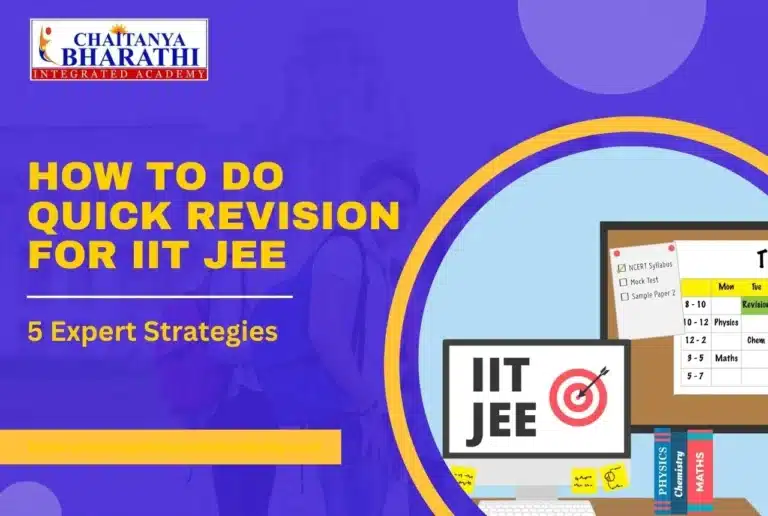The National Eligibility cum Entrance Test (NEET) is one of the most competitive exams in India for students aspiring to enter the medical field. With over 20 lakh students expected to appear for NEET UG 2025, the competition is tougher than ever.
Scoring 700+ out of 720 is essential to secure a seat in top medical colleges like AIIMS and AFMC. While the goal is challenging, it’s certainly achievable with the right strategy, discipline, and effective time management.
This blog explores five essential time management tips for NEET students that can significantly enhance their preparation and bring them closer to their dream MBBS seat.
Understanding What It Takes to Score 700+ Marks in NEET Exam
To begin with, understanding the exam structure is crucial. NEET UG 2025 consists of 3 core subjects: Physics, Chemistry, and Biology, with Biology holding the highest weightage (Botany and Zoology combined contribute 360 marks). The paper includes 180 questions (45 each from Physics and Chemistry, 90 from Biology). Each correct answer fetches 4 marks, while each wrong answer deducts 1 mark.
Achieving a score above 700 requires more than just hard work; it demands smart work, consistent accuracy, and disciplined practice. One must aim for a minimum 90% accuracy rate, especially in Biology, while maintaining speed and avoiding negative marking. A well-planned preparation strategy should start at least 12–18 months before the exam, with clearly defined milestones.
In essence, scoring 700+ means being conceptually strong, managing time effectively, and minimizing errors. A growth mindset, consistent review, and timely mock test practice are non-negotiable for NEET success.

5 Essential Tips to Achieve 700+ Marks in NEET 2025
1. Master the NCERT Thoroughly
NCERT textbooks are the Bible for NEET, especially for Biology and Chemistry. Every line, diagram, and table in NCERT holds weightage in the exam. Start by reading each chapter thoroughly and making short notes. Highlight important definitions and create concept maps to visualize linkages between topics.
Memorize biological diagrams and inorganic chemistry tables. Multiple readings help in long-term retention. Use flashcards and mnemonic devices to reinforce facts.
2. Develop a Strategic Study Plan
A smart study plan is the backbone of effective preparation. Create a realistic timetable that divides time between Physics, Chemistry, and Biology based on your strengths and weaknesses. Allocate focused slots for revision and practice. Follow daily, weekly, and monthly goals, and review your performance regularly.
Don’t ignore weaker sections—allocate extra time to improve them. Stay flexible and adjust your plan based on progress assessments and mock test results.
3. Practice with Purpose
Practice is what transforms knowledge into exam readiness. Begin with previous years’ question papers to understand the pattern. Take mock tests under timed conditions to build speed and reduce anxiety. After each test, analyze your mistakes and revise those areas. Focus on improving both speed and accuracy.
Solve at least 100 questions daily in the months leading up to the exam. Use high-quality question banks from trusted coaching institutes and apps.
4. Subject-Specific Preparation Techniques
- Physics: Focus on solving numerical problems and understanding core concepts. Practice formulas and derivations daily.
- Chemistry: For Organic Chemistry, use flowcharts and reaction mechanisms. In Inorganic, emphasize NCERT line-by-line reading.
- Biology: Master all NCERT Biology diagrams and terminology. Learn topic-wise through charts, mnemonics, and question banks.
- Use subject-specific resources like H.C. Verma (Physics), O.P. Tandon (Chemistry), and Trueman’s Biology as supplements.
5. Final Revision and Exam Strategy
As the exam approaches, focus on short notes and summary sheets for revision. Use memory techniques like spaced repetition and visualization. During the exam, manage your time wisely—allocate a fixed number of minutes per section. Attempt Biology first to build confidence, followed by Chemistry and Physics.
Avoid spending too much time on tricky questions. Stay hydrated, rest well, and avoid last-minute panic. Your mental state on exam day is as important as your preparation.
Top NEET Coaching Centers for Expert Guidance
While self-study plays a major role, quality coaching can accelerate your preparation. One such reliable name is Chaitanya Bharathi in Guwahati, known for:
- Experienced faculty and concept-based teaching
- Structured classroom programs and test series
- Impressive track record of students scoring 650+
Other reputed coaching institutes across India include Aakash Institute, Allen Career Institute, and Resonance. When choosing a center, consider factors like faculty expertise, test series quality, personal mentorship, and past success rates.

Common Challenges and How to Overcome Them
NEET preparation can feel overwhelming due to its vast syllabus and intense competition. Students often face issues such as:
- Time mismanagement: Solve this by sticking to a smart timetable.
- Stress and burnout: Practice meditation, take short breaks, and sleep adequately.
- Difficulty in understanding concepts: Use video lectures, reference books, or seek help from mentors.
- Lack of motivation: Surround yourself with goal-oriented peers and remember your purpose.
Persistence and positive thinking go a long way in overcoming these obstacles.

Success Stories: How Toppers Scored 700+
Many NEET toppers share common habits: early preparation, daily discipline, and consistent revision. For instance, students who scored 710+ in 2024 followed strict NCERT-based study, took weekly mock tests, and maintained error notebooks.
They emphasized clarity in Physics and did not ignore difficult topics. The key takeaway from their journey is: master the basics, revise relentlessly, and believe in your plan.
Final Thoughts
Scoring 700+ in NEET UG 2025 is undoubtedly tough, but not impossible. With the right guidance, consistent effort, and smart strategies, aspirants can turn their dream into reality.
To recap, the 5 essential time management tips for NEET students include mastering NCERT, building a solid study plan, practicing purposefully, using subject-specific strategies, and focusing on final revision.
Stay disciplined, stay positive, and remember—every hour well-managed today is a step closer to your MBBS tomorrow.












